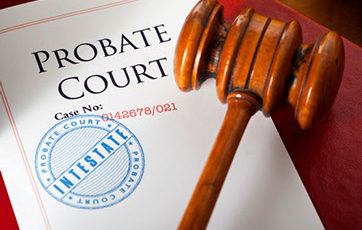A new year typically brings change for us Americans. Some of it is intentional change and likely part of our “New Year’s Resolutions.” Other changes tend to be natural life changes such as birth of a child, a marriage, perhaps a divorce, an inheritance or even the death of a loved one. It’s because of these changes that your estate plan should be reviewed every three to five years. Your estate plan should continue to accomplish whatever your goals may be.
When considering how to property plan for your future estate planning is a natural first step. It’s crucial to nominate guardians on behalf of minor children, designate someone to continue to pay your bills and make important healthcare decisions for you, should you be unable to do so yourself. Estate plans also allow the grantor (that’s you!) to remain in control of your assets, deciding who will receive what and how much their share will be. Once the plan is in place it should be reviewed every 3-5 years, or sooner if you experience a significant life change. Some changes that should prompt you to revisit your estate planning attorney include:
Divorce/Remarriage: If you are recently divorced then it is a good idea to schedule time to meet with your attorney to review your documents. Not doing so could result in your ex-spouse receiving assets at your death, making important healthcare decisions for you while you are ill or recovering in a hospital or it could mean that they will have access to your financial accounts. If you are considering getting remarried, then you will want to update your estate plan to be sure that your ex-spouse is long gone and that your new spouse is provided for.
Birth of a Child: Life changes dramatically when a child is born and so do your priorities. All parents can agree that the wellbeing of their children is important. A proper estate plan will designate guardians to care for your children and describe what you will leave to them and how they will receive it. Tailor your plan to allow your child to have enough money to attend college, pay for their dream wedding or put a down payment on a home. You may even set restrictions within your trust allowing your child to have control over their inheritance only upon reaching a certain age.
Death of A Loved One: Sometimes the individual you choose as your beneficiary or nominate as either your Healthcare Surrogate or Durable Power of Attorney will predecease you. In the event that this occurs and you don’t have anyone else named in your documents, then you will need to schedule an appointment with your estate planning attorney to make some minor adjustments.
Inheritance: Inheriting a large sum of money may overwhelm those who wish to either invest it or protect it. It’s important to sit with a qualified estate planning attorney who can answer all of your questions and provide you with the best possible solution.
Call the attorneys at Wild, Felice & Partners for your free consultation at (954)944-2855.
It’s A Wild World. Are You Protected? SM


